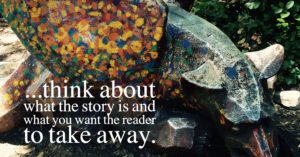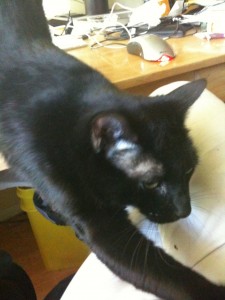
 Next spring, I need to get new windows for this ancient house. Accordingly, if you ever wanted to give yourself the gift of an edit from an experienced editor/writer/teacher who is also a Locus and World Fantasy Award nominee and Nebula award winner, I highly encourage it. All edits/reads include the chance to identify particular spots for feedback in advance and to ask questions afterward.
Next spring, I need to get new windows for this ancient house. Accordingly, if you ever wanted to give yourself the gift of an edit from an experienced editor/writer/teacher who is also a Locus and World Fantasy Award nominee and Nebula award winner, I highly encourage it. All edits/reads include the chance to identify particular spots for feedback in advance and to ask questions afterward.
Here’s what I offer:
Story editorial read
$50 per 5,000 words. This is not an edit. It is a 1-2 page analysis that includes notes on suggested changes, weak spots, and other editorial feedback. Stories over 5,000 words will be pro-rated at $5 per additional 500 words.
Novel editorial read
$1000 per 100.000 words. This is not an edit. It is a chapter by chapter analysis that includes notes on suggested changes, weak spots, and other editorial feedback. I will include a copyedit of the first chapter (up to ten pages) to show patterns and suggestions at the sentence level. Works over 5,000 words will be pro-rated at $10 per additional 1000 words.
Story copyedit
$100 per 5,000 words. This is a rigorous edit of something you consider finished, with changes tracked and explanatory notes. If you are not happy with it, I will return your money. Stories over 5,000 words will be pro-rated at $10 per additional 500 words.
Novel copyedit
Because this can vary greatly, the fee is based on how much work I’m looking at. Send one chapter and the word length and I can provide an estimate.
Got a project that doesn’t fit any of these? Feel free to mail me at cat@kittywumpus.net (it would be handy if you use the subject line “Edit Request”) with the details.
Projects will be added to my work queue in the order they are received. If you need your work prioritized due to a deadline, there is an additional rush fee.
...
 The flooring saga continues. One guy came and made the repairs to the subfloor that the flooring people had requested — or so I thought! When the flooring people came back, they weren’t happy with things still, and so the other company is coming back to do that, but can’t get here until the latter part of the month, and since they didn’t understand they needed to level the floor the first time, there’s some additional cost, although they are cutting me a deal on it as an apology. At any rate, someday I will have a usable kitchen, but that time is not now.
The flooring saga continues. One guy came and made the repairs to the subfloor that the flooring people had requested — or so I thought! When the flooring people came back, they weren’t happy with things still, and so the other company is coming back to do that, but can’t get here until the latter part of the month, and since they didn’t understand they needed to level the floor the first time, there’s some additional cost, although they are cutting me a deal on it as an apology. At any rate, someday I will have a usable kitchen, but that time is not now.
As you can guess, this is all complicated, time-consuming — and costly, particularly on the heels of replacing the roof last month, which I knew I’d have to do at some point but was hoping to do next summer, thereby bumping any thoughts of a new deck to 2023. Accordingly I’m going to take on some editing work in the next few months.
Accordingly, if you ever wanted to give yourself the gift of an edit from an experienced editor/writer/teacher who is also a Locus and World Fantasy Award nominee and Nebula award winner, this might be the time. All edits/reads include the chance to identify particular spots for feedback in advance and to ask questions afterward.
I will be accepting a limited number of projects, so if you are interested, I would contact me sooner rather than later.
Story editorial read
$50 per 5,000 words. This is not an edit. It is a 1-2 page analysis that includes notes on suggested changes, weak spots, and other editorial feedback. Stories over 5,000 words will be pro-rated at $5 per additional 500 words.
Novel editorial read
$1000 per 100.000 words. This is not an edit. It is a chapter by chapter analysis that includes notes on suggested changes, weak spots, and other editorial feedback. I will include a copyedit of the first chapter (up to ten pages) to show patterns and suggestions at the sentence level. Works over 5,000 words will be pro-rated at $10 per additional 1000 words.
Story copyedit
$100 per 5,000 words. This is a rigorous edit of something you consider finished, with changes tracked and explanatory notes. If you are not happy with it, I will return your money. Stories over 5,000 words will be pro-rated at $10 per additional 500 words.
Novel copyedit
Because this can vary greatly, the fee is based on how much work I’m looking at. Send one chapter and the word length and I can provide an estimate.
Got a project that doesn’t fit any of these? Feel free to mail me at cat@kittywumpus.net (it would be handy if you use the subject line “Edit Request”) with the details.
Projects will be added to my work queue in the order they are received. If you need your work prioritized due to a deadline, there is an additional rush fee.
...
 I was on two different editing panels at Norwescon this weekend.
I was on two different editing panels at Norwescon this weekend.
I’ve taken the liberty of combining my notes from both panels, but my notes from the first panel are much better and actually contain a page of quotes from participants, while on the second panel, which was my 4th of the day, I was much less energetic and just wrote down the questions and two notes, and am reconstructing some things from my memory, so I cannot vouch for total accuracy. In each panel, we did something that I picked up from Mary Robinette Kowal, taking questions from the audience before starting the panel, and using those to drive the conversation. It’s a great technique for wide-ranging, discussion-driven panels.
Want to Be An Editor?
Where can or do you begin? It’s hard to get an editing position when you don’t have work under your belt. Listen to editors share the details of how they got started and learn some of the pitfalls to avoid.
Chimedum Ohaegbu, Gordon Van Gelder, Cat Rambo, Jasmine Silvera
Need An Editor?
Need an editor? What can you expect? How do you find one that fits within your budget, has a good reputation, and is knowlegeable of your genre?
Cat Rambo, Cory Skerry, Rhiannon Held, Jasmine Silvera
...
The question of hiring an editor often comes up in my classes, and since editor for hire is one of the hats I wear, I wanted to provide some overview. There are different kinds of edits. I’m focusing on two: the developmental edit versus the copy edit. You might also hire someone to proofread, where they are simply looking for mistakes and errors, rather than making any editorial suggestions.
...
 Yesterday I taught a day-long workshop on rewriting and editing one’s work for Clarion West. I usually do this as a two hour online workshop, so it was interesting to take the class and get a chance to really flesh it out, particularly since I can use this version to create an on-demand version.
Yesterday I taught a day-long workshop on rewriting and editing one’s work for Clarion West. I usually do this as a two hour online workshop, so it was interesting to take the class and get a chance to really flesh it out, particularly since I can use this version to create an on-demand version.
As with all writing advice, mileage will vary according to the individual. The best thing as a writer that you can do is to pay attention to your own process and make it more effective. Experiment with lots of things, identify the practices that work, and incorporate them into your process. Keep experimenting, mixing things up a little, every once in a while, writing to the sound of whale songs, or dictating while hiking, or using a pen rather than the keyboard — it doesn’t matter what as long as you keep testing things in a way that lets you grow as a writer.
...

Overall:
Characters:
World:
Enjoy this writing advice and want more content like it? Check out the classes Cat gives via the Rambo Academy for Wayward Writers, which offers both on-demand and live online writing classes for fantasy and science fiction writers from Cat and other authors, including Ann Leckie, Seanan McGuire, Fran Wilde and other talents! All classes include three free slots.
Prefer to opt for weekly interaction, advice, opportunities to ask questions, and access to the Chez Rambo Discord community and critique group? Check out Cat’s Patreon. Or sample her writing here.
...
 I’m glad I’ve got enough students for the Editing 101 online class that starts tonight, but I’d love a couple more. Mention reading this when you mail me about the class and I’ll give you a special deal. 😉
I’m glad I’ve got enough students for the Editing 101 online class that starts tonight, but I’d love a couple more. Mention reading this when you mail me about the class and I’ll give you a special deal. 😉
So what do we do and who is the class aimed at?
The class is aimed both at writers who want to learn to edit their work better as well as editors who want to hone their skills and learn about it as a career path.
Here’s what the three two-hour sessions cover. They’re spaced two weeks apart.
Got questions? I’d be happy to answer them.
...

Some people are taking the class in order to edit their own stuff, others to edit for other folks, a couple for a combination of that. We talked about what a developmental edit is intended to do, and how it’s different from a copy-edit. In fact, you want to avoid copy-editing (other than a couple of cases which I’ll get to in a minute) because often that sentence you’re tinkering with will end up discarded or substantially revised in the final version.
Honing your editing ability to where you can trust it is one way to free yourself up when writing. Instead of listening to the internal editor telling you that sentence isn’t perfect or that you need to check that name on Wikipedia before using it, you can assure that editor it will get its chance during the revision process and go on writing.
...
Want access to a lively community of writers and readers, free writing classes, co-working sessions, special speakers, weekly writing games, random pictures and MORE for as little as $2? Check out Cat’s Patreon campaign.

"(On the writing F&SF workshop) Wanted to crow and say thanks: the first story I wrote after taking your class was my very first sale. Coincidence? nah….thanks so much."

(Science fiction, short story) “For someone like me,” Nefirah’s client said, “it’s not a question of whether or not I’ll be remembered. The question is precisely how.”


This site is protected by reCAPTCHA and the Google Privacy Policy and Terms of Service apply. This site is a participant in the Amazon Services LLC Associates Program, an affiliate advertising program designed to provide a means for sites to earn advertising fees by advertising and linking to Amazon.com.